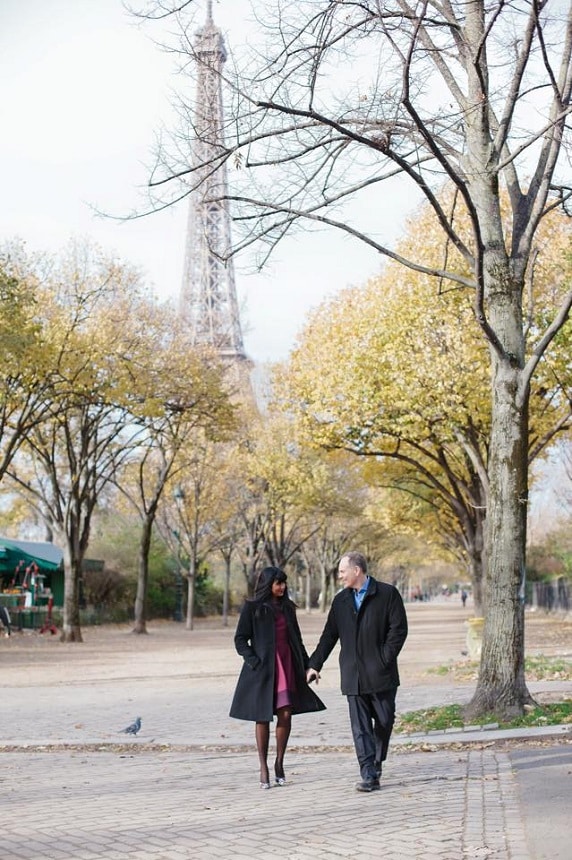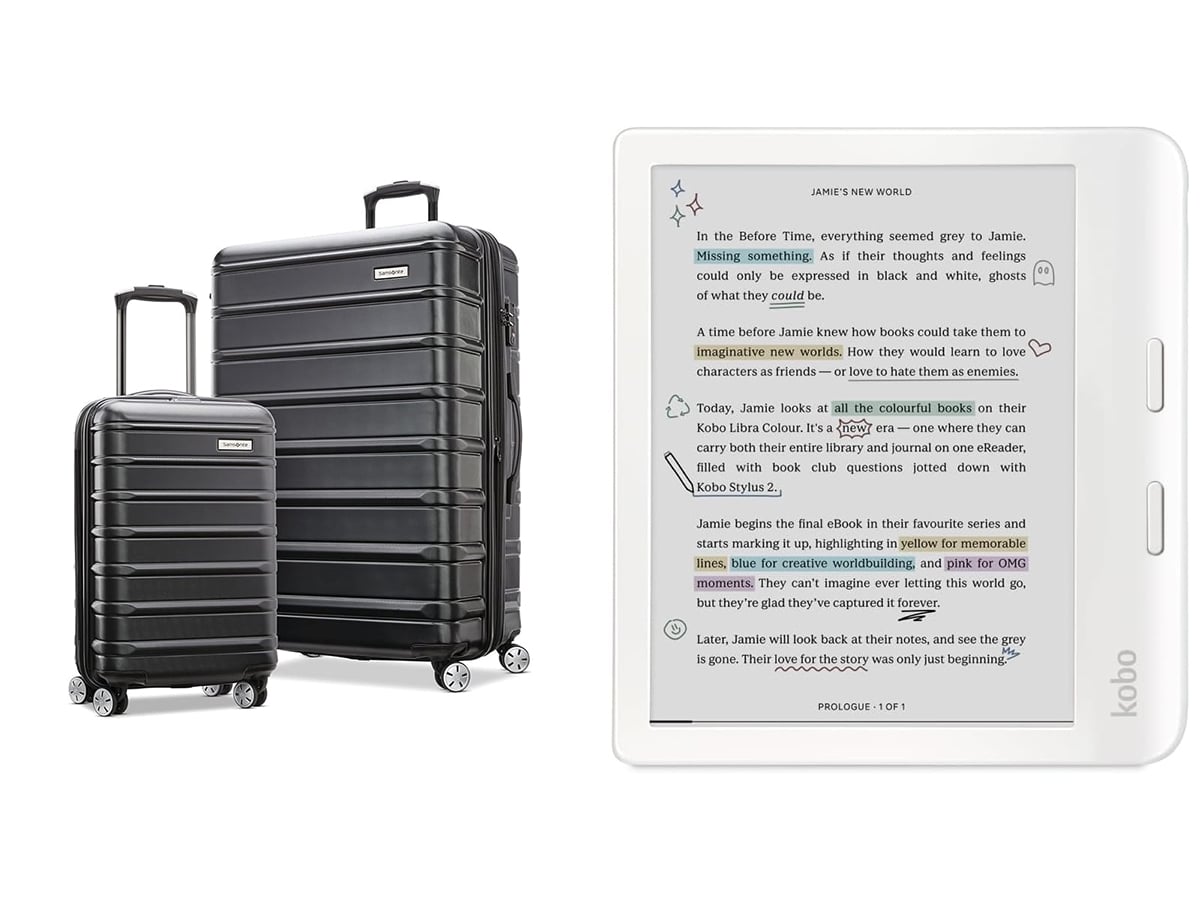I know a lot of Americans and Canadians are planning on traveling to Europe this summer. My wife (a Canuck) and I are one of them. We’ve been to Europe dozens of times but it’s been four years since we hopped the Atlantic (thanks, pandemic). Though we’re savvy travelers, we still need to brush up on our skills. Heck, if Rick Steves can get pickpocketed in Paris, so can you. TIP: Travel with a money belt or an anti-theft crossbody bag to protect your stuff.
 This post contains references to products from one or more of our advertisers. We may receive compensation when you click on links to those products. For an explanation of our Advertising Disclosure, visit this page.
This post contains references to products from one or more of our advertisers. We may receive compensation when you click on links to those products. For an explanation of our Advertising Disclosure, visit this page.
So, if you’re headed to Europe this summer, be aware of the tricks and scams that often befall unsuspecting travelers and arm yourself with knowledge and know-how. Here are some of the common scams travelers to Europe may encounter:
Menu tricks
Speaking of Rick Steves, I recently wrote a post sharing his advice for finding the best places to eat in Europe and not get ripped off. In that story, I cited examples of a scam some restaurants pull where they charge astronomical rates for food and drink. Sometimes restaurants don’t put prices on the menu or they do the old switcheroo.
Here’s an example from the Daily Mail. “An American couple were slapped with an eye-watering $860 bill after a meal and drinks at a notorious Mykonos restaurant where the owner defends its extortionate prices.” The short story is “the menu made it appear like it was $40 for a crab leg but in reality it was $40 for a gram of crab leg with a minimum amount to place an order.”
When I got scammed in Hungary
Unfortunately, this type of scam or some variation of it, isn’t uncommon. I was scammed in Budapest a couple of decades ago (here’s that story). In short, we were charged ten times the price we should have been for drinks. I’m pretty sure the waiter switched the menu so I would suggest taking a photo of the menu just in case they try the bait and switch on you. I take pictures of almost all menus when I’m traveling since I document virtually everything.
People giving you free stuff
My buddy Nomadic Matt recently wrote a piece about travel scams around the world, including the old “free bracelets/rosemary/anything they can put on you” scam. As Matt says, in this scam, common in Europe,”a friendly person will approach you for a quick chat, then place a bracelet around your wrist or hat on your head, or give you a little sprig of rosemary. Once you have it on your person, they will demand money. When you refuse, they will begin to cause a scene in the hopes you would rather give them some money than be embarrassed. Don’t allow anyone to put anything on your body, and be extremely wary of accepting anything for free. If they put something on you, simply take it off, give it back to them, and be firm about it. Then walk away and move on with your day. They won’t chase you.” Matt’s right. This has happened to me and sometimes by people dressed up as a monk or a blind person. I don’t take anything from strangers. Ever.
Pigeon poop or “accidental” ketchup spill
In this scam, AARP warns: “Pigeon poop — real or fake — or ketchup, ice cream, coffee or something else is spilled on you. Or thrown at you. “Someone will approach you and offer to help clean you up. Another person then picks your pocket while you are distracted,” the State Department warns.”
Unnecessary helpers
SmarterTravel rounded up a few Europe travel scams every tourist needs to know about, including this one about unnecessary helpers: “Some thieves hang out at train-ticket machines, eager to assist you in buying tickets with a pile of your quickly disappearing foreign cash. And skip the helping hand from official-looking railroad attendants at the Rome train station. They’ll lead you to your seat, then demand a ‘tip.'”
The stripping shoplifter
SmarterTravel shares another scam I’d never heard of but truthfully, can see myself falling for. Here’s how they break it down: “Gelato in hand, you’re strolling down a street in Italy when suddenly, a woman starts loudly arguing with a street vendor. A crowd gathers as he accuses her of shoplifting. To prove her innocence, she starts to strip: Once she’s down to her underwear, the vendor apologizes, the woman leaves, and the onlookers disappear—but so have their wallets, thanks to a team of pickpockets who were working the show.”
The Camera Scam
Fodor’s warns travelers not to fall for the camera scam, which they say works in two ways. “A friendly stranger may offer to take your picture with your camera or smartphone, then run off with it. Conversely, a stranger may ask you to take their picture, dropping their camera or smartphone while handing it over, and demanding that you pay for the damages, hoping you either pay up out of embarrassment or get so involved in the argument you don’t notice you’ve been pickpocketed by an accomplice.”

Instead of having a stranger take your photo, my advice is to hire a service like Flytographer, where professional photographers will do a photo shoot and you will get photos like the one above and not have to worry about the above scam. I’ve done Flytographer photo shoots around the world with my family and they are our most cherished souvenirs. Click here to book and use my code JOHNNYJET50 to get $50 off your first Flytographer photo shoot.
There are dozens if not hundreds of other scams out there, including the three card (or cup) monte, which you see all around the world. It shocks me that people still fall for it. There’s also the falling lady scam, which is similar to the baby toss.
Bottom line: Don’t stress about being scammed, just be aware that these things do happen (and not just in Europe). Tourists are easy targets since they usually have money on them, they don’t know the lay of the land, they’re jetlagged and unsuspecting. My advice is to read advisories from the US embassy of the country you’re traveling to. If I had done that before traveling to Hungary, I never would have fallen victim to the common scam. Though, if it hadn’t happened, I wouldn’t have written this piece alerting you to scams to watch out for in Europe.
No matter what, always trust your instincts. If something doesn’t feel right, then it probably isn’t. And always keep your money, passport in a safe place, either by using a money belt or an anti-theft crossbody bag like this one, which my wife recommends due to its size, shape, style and slash-resistant construction.
More Scams to Watch Out For
- Is Your Hotel Scamming You?
- Don’t Fall For It: Scammers Are Pretending to be Customs and Border Protection Agents
- Cybersecurity and Fraud Expert Shares Tips on How Not to Get Scammed When Traveling
- How To Avoid Vacation Rental Scams
- Don’t Fall For These QR Code Scams
- 7 Tips For Avoiding Black Friday Scams Online
- These Are the Latest European Travel Scams to Know Before You Go
- Don’t Fall For the Falling Lady Scam
Want more travel news, tips and deals? Sign up to Johnny Jet’s free newsletter and check out these popular posts: The Travel Gadget Flight Attendants Never Leave Home Without and 12 Ways to Save Money on Baggage Fees. Follow Johnny Jet on MSN, Facebook, Instagram, Pinterest, and YouTube for all of my travel posts.




If human beings were devoid of human language we would have a lot to say about thses these, would we not?